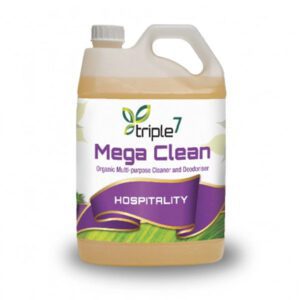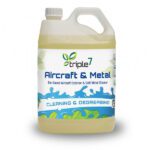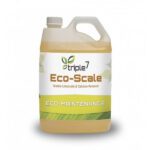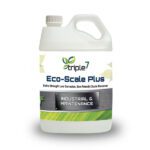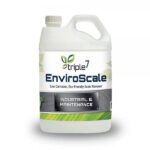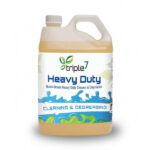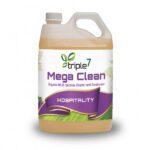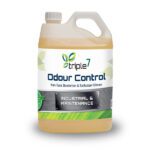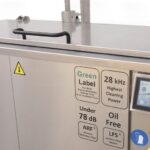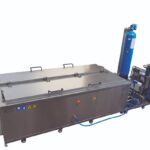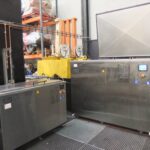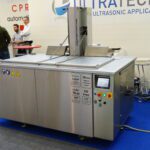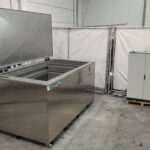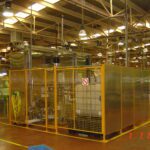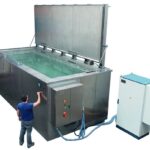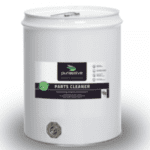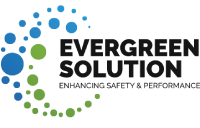Revolutionizing HSS Tool Bit Production: A Safer and More Efficient Descaling Solution
Case Study-1
- Home
- Case Studies
- Revolutionizing HSS Tool Bit Production: A Safer and More Efficient Descaling Solution
Revolutionizing HSS Tool Bit Production: A Safer and More Efficient Descaling Solution
Introduction:
In the world of manufacturing, efficiency and sustainability are crucial factors for any company’s success. This is particularly true for a company that produces 8 lac tool bits each month, where even small improvements in processes can yield significant benefits. One area of focus is the descaling process, which traditionally involves the use of hydrochloric acid. However, a groundbreaking solution called Triple 7 Mega Clean offers an organic, non-chemical-based alternative that revolutionizes the descaling process while providing numerous advantages. In this blog post, we will explore the current situation, the challenges faced, and how the implementation of Triple 7 Mega Clean is transforming the company’s manufacturing system.
The Current Situation:
The company’s straight-line manufacturing system involves applying different salts to high-strength steels for varying durations to achieve desired mechanical and shear strength values. Subsequently, the tool bits are desalted using hydrochloric acid in a three-stage process over two hours. This process requires the tool bits, weighing about 200 kilos, to be immersed in heated water, then transferred to a hydrochloric acid bath at room temperature for 45-60 minutes. Once descaling is complete, the bits are rinsed with water and may require further salt bath treatment.
The Challenges:
While the existing descaling process has been effective, it presents several challenges. Firstly, the use of hydrochloric acid poses safety concerns for workers due to its corrosive nature. Additionally, the two-stage washing process consumes significant amounts of energy, water, and time. Furthermore, the cost of treating the acid in the Effluent Treatment Plant (ETP) with alum, caustic, and lime adds to the company’s expenses. Lastly, the reliance on hazardous chemicals hampers the company’s sustainability goals and limits cost control opportunities.
The Solution: Triple 7 Mega Clean
To address these challenges, the company has embraced an innovative solution: Triple 7 Mega Clean, an organic, non-chemical-based alkaline cleaner that doubles as a descaler. This product offers four distinct advantages that completely transform the descaling process.
- Rapid Dissolution: Triple 7 Mega Clean dissolves heat, rust, and salt scales in just 10 minutes without the need for elevated temperatures. This significant time-saving feature eliminates the requirement for prolonged soaking, reducing the descaling process duration by approximately 90 minutes per load of 250 kilograms of tool bits.
- Streamlined Process: By eliminating the two-stage washing process, the company saves substantial amounts of energy, water, and time. This streamlined approach optimizes efficiency and reduces operational costs while maintaining the desired level of cleanliness.
- Environmental Benefits: Triple 7 Mega Clean has a pH of 8.5 and is readily biodegradable. By replacing hydrochloric acid with this organic alternative, the company avoids the cost of treating hazardous waste in the ETP with alum, caustic, and lime. This shift towards a more sustainable solution aligns with the company’s commitment to environmental stewardship.
- Automation and Cost Control: With Triple 7 Mega Clean’s non-toxic and non-corrosive properties, the company plans to automate the descaling system using a filtration and recycling system. This automation further enhances efficiency, while the use of natural and organic consumables ensures a safer working environment, and thus improving employee motivation and reducing chemical footprint. By replacing a hazardous product, the company also gains greater cost control and minimizes potential risks associated with the traditional descaling process.
Implementation and Future Outlook:
The company is currently in the process of implementing the automated system, leveraging Triple 7 Mega Clean as the primary descaling agent. This innovative approach represents a significant step towards improved efficiency, worker safety, and sustainability. With the integration of the filtration and recycling system, the company will further optimize resource utilization, reduce waste generation, and enhance overall productivity.
Conclusion:
The utilization of Triple 7 Mega Clean in the tool bit production process offers a transformative solution that addresses the limitations of traditional descaling methods. By replacing hydrochloric acid with this organic, non-chemical-based alternative, the company achieves faster descaling, substantial time and resource savings, reduced environmental impact, and enhanced cost control. This shift towards a more efficient and sustainable manufacturing system exemplifies the company’s commitment to innovation and responsible business practices. As the implementation of the automated system progresses, the company is poised to lead the industry in producing tool bits while prioritizing worker safety, operational efficiency, and environmental sustainability

